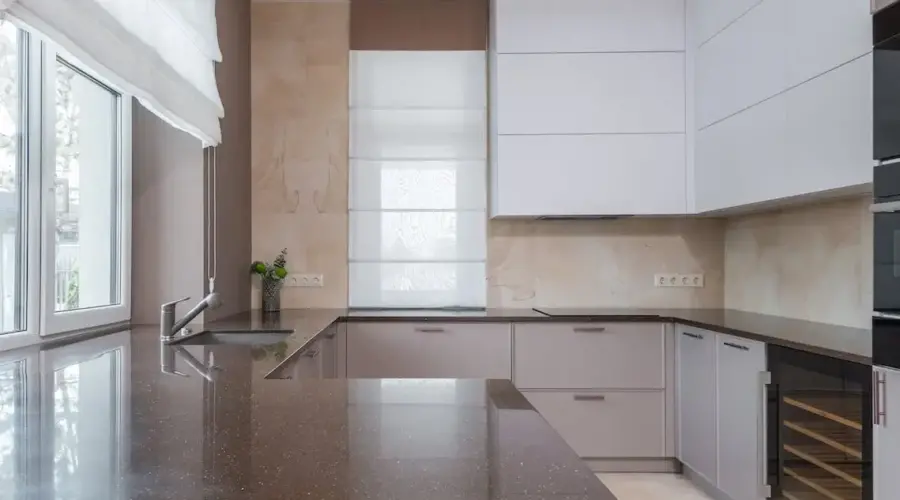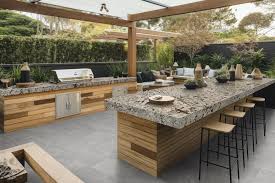Quartz vs. Granite Countertops Comparison
When planning a kitchen or bathroom renovation, one of the most important decisions you will make is choosing the right countertop material. For many homeowners, this decision often comes down to a Quartz vs. Granite Countertops Comparison. Both materials are highly regarded for their beauty, durability, and ability to elevate any space. However, their differences in composition, maintenance, and performance can significantly influence which one is the right choice for your lifestyle.
At Tureks, we work with both natural and engineered stones to bring exceptional quality and timeless elegance to interiors. In this comprehensive guide, we will explore every aspect of quartz and granite to help you make an informed, confident decision.
When planning a kitchen renovation, reviewing a detailed Quartz vs. Granite Countertops comparison helps homeowners clearly see which option matches their lifestyle.

Understanding the Core Difference
The starting point for any Quartz vs. Granite Countertops Comparison is their origin and composition.
Granite is a 100% natural igneous rock extracted directly from the earth in large blocks. These blocks are cut into slabs and polished to reveal unique mineral patterns. Every granite slab is one-of-a-kind, with natural variations in color, veining, and texture created over millions of years.
Quartz countertops, on the other hand, are engineered. They are composed of approximately 90–95% crushed natural quartz crystals combined with high-quality polymer resins and pigments. This manufacturing process creates a highly durable, non-porous material with consistent patterns and colors.
Key takeaway: Granite celebrates raw, natural artistry, while quartz offers engineered precision and predictability.

Aesthetic Appeal: Nature’s Masterpiece vs. Engineered Creativity
In design terms, the Quartz vs. Granite Countertops Comparison often begins with aesthetics. Both materials are beautiful, but they offer different types of beauty.
- Granite delivers a sense of authenticity that only natural stone can provide. Its organic veining, speckles, and mineral formations create a unique visual story in every slab. If you want your kitchen or bathroom to feature a one-of-a-kind natural focal point, granite is unmatched.
- Quartz offers controlled and repeatable designs. Modern technology allows quartz to mimic natural stone patterns, such as marble, or to present uniform solid colors that granite cannot achieve. This makes quartz an excellent choice for contemporary interiors where design precision is important.
Design insight: If you value unique natural variation, granite is your best match. If you prefer consistency or a specific color tone, quartz offers greater creative control.
From durability to design, Quartz vs. Granite Countertops remain the most debated choice, making it essential to understand the pros and cons of each.

Durability in Everyday Use
Both quartz and granite are extremely durable, but they perform differently under certain conditions.
Scratch and Chip Resistance:
Quartz generally has an edge in resisting scratches and chips. The combination of hard quartz crystals and flexible resins creates a surface that can handle heavy daily use. Granite is also tough, but its rigid crystalline structure can make it slightly more vulnerable to chipping at edges if struck with force.
Heat Resistance:
Granite, formed under extreme heat in nature, is highly heat resistant. You can place a hot pan directly on a granite surface without significant risk of damage. Quartz is heat resistant as well, but sudden temperature changes can affect the resins, so using trivets is recommended.
Stain Resistance:
This is where quartz excels. Its non-porous structure prevents liquids from penetrating the surface, making it resistant to stains from coffee, wine, or oils. Granite is porous by nature and requires sealing to protect against staining.
Maintenance and Longevity
One of the most important factors in a Quartz vs. Granite Countertops Comparison is maintenance.
- Granite requires sealing every one to three years, depending on usage and the specific type of granite. Without proper sealing, it can absorb liquids and develop stains.
- Quartz is completely non-porous and never requires sealing. It is virtually maintenance-free, needing only routine cleaning with mild soap and water.
Over the lifespan of your countertop, the lack of ongoing sealing for quartz can save both time and maintenance costs.

Design Flexibility
Granite: Your design choices are limited to the colors and patterns nature provides. While this results in unique and stunning visuals, it can also limit specific design goals if you have a precise color scheme in mind.
Quartz: The manufacturing process allows for a vast range of colors, from pure white to deep black, and patterns that imitate marble, concrete, or other stones. This makes quartz ideal for projects requiring multiple matching slabs or a specific look.
Suitability for Different Environments
When deciding between quartz and granite, consider where the countertop will be installed.
- Indoor Kitchens and Bathrooms: Both materials perform well, but quartz’s non-porous quality makes it especially suitable for busy households or professional kitchens.
- Outdoor Kitchens: Granite is the better choice. Its natural composition withstands UV exposure without discoloration, whereas prolonged sunlight can cause quartz resins to fade or yellow.
Cost Considerations and Long-Term Value
At first glance, granite may have a lower starting price depending on the rarity and source of the slab. Quartz can sometimes be slightly more expensive initially, particularly for premium patterns.
However, when factoring in total cost of ownership, quartz often proves more cost-effective. The absence of sealing, combined with its resistance to stains and chips, means fewer repairs and lower maintenance expenses over the years.
Example: Over a 15-year period, the cost of resealing granite every few years can add up significantly, especially if done professionally.

Sustainability and Environmental Impact
Sustainability is becoming a priority for many homeowners. Granite is a natural product that requires quarrying and transportation, which can carry a larger carbon footprint depending on its source. Quartz manufacturing uses natural materials but also incorporates resins and pigments, which involve industrial processing. However, many quartz manufacturers now integrate recycled materials into their products.
Choosing locally sourced granite or quartz from suppliers who prioritize sustainable practices can minimize environmental impact.
Hygiene and Safety
Hygiene is an often-overlooked factor in a Quartz vs. Granite Countertops Comparison.
- Quartz is naturally non-porous, meaning it does not harbor bacteria or mold, making it a safe choice for food preparation areas.
- Granite can be just as hygienic, but only when properly sealed. Without sealing, microscopic pores can trap moisture and bacteria.
Market Trends and Resale Value
Both quartz and granite are considered premium countertop materials that enhance home value.
Recent market trends show growing demand for quartz, especially in modern and minimalist interiors, due to its easy care and design versatility. However, granite continues to hold strong appeal, particularly in luxury homes where natural stone is a selling point.
In real estate, having either high-quality granite or quartz countertops can be a significant advantage, but matching the material to your home’s style is key.
Practical Recommendations
When choosing between quartz and granite, align your decision with your lifestyle and design goals.
Choose Quartz If:
- You want zero-maintenance convenience.
- Consistent color and pattern are important.
- You prefer maximum stain resistance.
- Your project requires multiple matching slabs.
Choose Granite If:
- You love the beauty of natural, unique patterns.
- Heat resistance is a top priority.
- You’re creating an outdoor kitchen.
- You’re comfortable with periodic sealing.
Cleaning and Care Tips
Quartz Care:
- Use mild soap and water for daily cleaning.
- Avoid harsh chemicals and abrasive pads.
Use trivets for hot pots.
Granite Care:
- Clean with a pH-neutral stone cleaner.
- Reseal regularly to protect against stains.
- Wipe spills quickly to avoid absorption.
Conclusion
A Quartz vs. Granite Countertops Comparison is not about declaring one material universally superior. Instead, it’s about understanding the strengths of each and how they align with your specific needs.
For a busy household that values ease of care and modern style, quartz is a smart, practical choice. On the other hand, when looking at a Quartz vs. Granite Countertops guide, granite often appeals to those who appreciate the unmatched beauty of natural stone and don’t mind periodic maintenance, as it delivers timeless elegance.
At Tureks, we provide an extensive selection of both quartz and granite slabs, ensuring every client finds the perfect match for their project. By exploring our Quartz vs. Granite Countertops comparison in detail at our showrooms, you can see, touch, and evaluate these stunning materials in person. This way, you make your final decision with complete confidence and clarity.
For homeowners seeking even more luxurious options, exploring the timeless beauty of Turkish marble can open up additional design possibilities.
By exploring Quartz vs. Granite Countertops side by side, you gain the confidence to choose a surface that balances beauty, performance, and long-term value.
